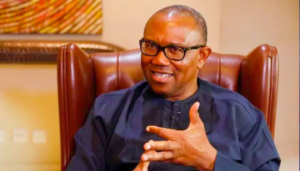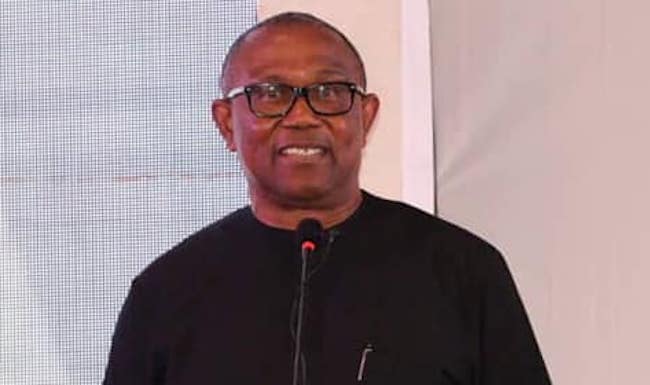Peter Obi, Recent Labour party presidential candidate and former governor of Anambra State, has emphasized the necessity for severe penalties for Nigerian leaders found guilty of corruption, stressing the urgent need to stop the economic waste in the nation.
In a statement released on Tuesday, which is the International Anti-Corruption Day, Obi highlighted the big issue of corruption that has afflicted Nigeria across various levels of government.
He pointed out that the country is currently burdened by a staggering debt, exacerbated by the government’s relentless quest for additional loans.
Obi urged Nigerian leaders to engage in self-reflection and cleanse themselves of corrupt practices.
“Today, as the global community observes International Anti-Corruption Day, it serves as a crucial reminder for us in Nigeria, especially given the overwhelming corruption that has plagued our nation over the years,” Obi stated.
He referenced a recent report from the Independent Corrupt Practices and Other Related Offences Commission (ICPC), which asserted that corruption has significantly undermined Nigeria’s economic and social stability, a sentiment with which he fully agrees.
“Corruption is indeed the root cause of our national stagnation. From the opacity in budgeting and fund allocations to the embezzlement of public finances through reckless looting and budget manipulation, to the abuse of office for personal benefit and rampant contract inflation—these are all manifestations of corruption at various governmental levels, alongside bribery and favoritism rampant in numerous offices,” he remarked.
With Nigeria ranked 145 out of 180 countries on the corruption perception index, Obi called for an all-out effort to combat this issue if any meaningful progress is to be made.
He also noted that Nigeria ranks among the 11 worst-governed nations in Africa over the past decade, which continues to hinder effective governance and obstruct national advancement.

Recently, Obi cited a report indicating that the auditor general of the Federation uncovered financial discrepancies amounting to N3.403 trillion across various ministries, departments, and agencies for the fiscal year ending December 31, 2021. This staggering amount exceeds 20% of the national budget for that year and raises serious questions about accountability.
“We are now facing a high debt profile, driven by an insatiable appetite for loans without transparent accounting for past debts. There are no visible investments or positive economic impacts from these loans, suggesting they have likely been misallocated or squandered,” he explained.
Obi asserted that these issues reflect the systemic corruption undermining Nigeria’s development efforts. He urged anti-corruption agencies to intensify their efforts against corruption, focusing on critical national interests.
“Corrupt practices such as oil theft, budget manipulation, bribery, and the misappropriation of public funds should be the priority of our anti-graft agencies. Those found culpable must face severe consequences,” he insisted.
He concluded by reminding leaders of the importance of introspection and the need to reject corrupt practices, while encouraging citizens to oppose corruption in their own capacities for the sake of national interest.
“I remain dedicated to significantly reducing corruption in our country. As I have consistently stated, in any organization or nation where leaders are not corrupt, corruption is reduced by over 60%, making it far more manageable to tackle the remainder,” Obi affirmed.




